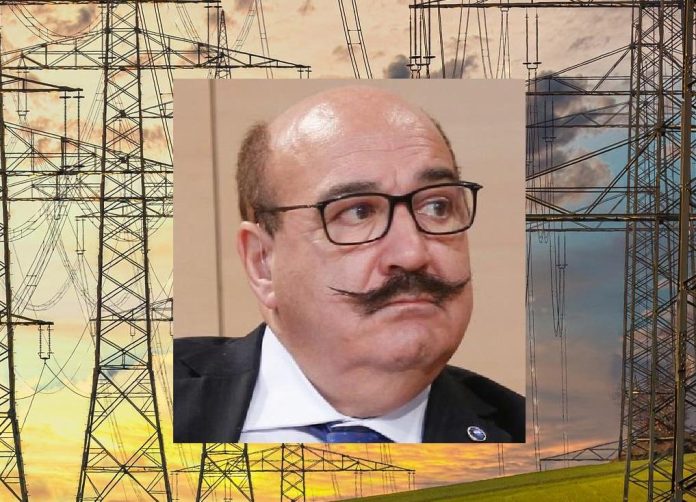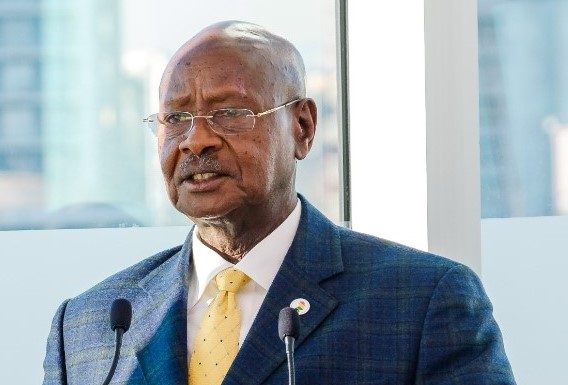Professor Em. Samuel Furfari is a Chemical Engineer, having taught energy geopolitics and energy politics at Brussels ULB University (Université Libre de Bruxelles), between 2003 and 2021, where he also obtained his phD, with a thesis in the field of energy. Between 1982 and 2018, he was a senior official at the Energy Directorate-General of the European Commission, where he has devoted an entire career to energy technology and policy.
In an interview with Atlantico, originally published in French, Furfari discusses the state of Europe’s energy crisis and the policies at the heart of this.
***
During the recent US presidential debate, Donald Trump claimed that Germany had ‘failed’ in its energy transition and had been forced to return to traditional energy sources such as coal. This interpretation was quickly corrected by the German Foreign Ministry. How much of what the former US President said was true and how much was false?
Samuel Furfari: Donald Trump is right on some points, but he is exaggerating. Germany is indeed struggling with its energy transition, commonly known as the ‘EnergieWende’. Although the country has reduced its dependence on fossil fuels, it has not completely eliminated the use of coal. Some coal-fired power stations remain in operation to guarantee a stable supply when wind or sun are not enough. However, Trump is wrong to say that Germany has returned to coal on a massive scale or that it has reopened new power stations. The country has not built any new coal-fired power stations, but continues to import coal to power the existing ones. Perhaps the former US President is confusing coal-fired power stations with the new gas-fired power stations that Germany is planning to build to compensate for the closure of its nuclear power stations.
I do not approve of this kind of communication. It is not the task of the @GermanyDiplo to interfere in the #USElections in such a way. And on the issue: given the high energy costs in 🇩🇪, I would be more humble…@cducsubt #debate2024 #TrumpHarris https://t.co/e7CRMbrbwJ
— Johann Wadephul (@JoWadephul) September 11, 2024
Where does Germany really stand in its energy transition? Is the report by the German Federal Audit Office in March 2024 representative of a systemic failure in the EnergieWende?
Germany is going through a critical period in its energy transition. Because it is ambitious, the EnergieWende is encountering major obstacles. Wind power, on which Germany was relying so heavily, produces electricity only 23% of the time on average, which makes it difficult to be totally dependent on this source. The report by the Federal Audit Office in March 2024 highlights the enormous costs of the transition and the inability to find reliable solutions to replace fossil fuels; it should be noted that this is not to propose a review of ambition but to criticise the government for not doing enough, which demonstrates if proof were needed that the ‘Germany system’ is convinced of the merits of the EnergieWende. Yet Germany will probably not achieve its 2030 targets, in particular the 80% target for renewable energy in electricity. At present, it is at around 50%, but the challenges ahead are considerable. Increased use of natural gas seems inevitable to stabilise the electricity grid, but this runs counter to the country’s climate commitments.
Why do you think European countries continue to allow Germany to exert a strong influence on European energy policy, despite the country’s internal problems?
Germany’s influence on European energy policy is immense, for several reasons. Firstly, Germany is the most populous country in the European Union, and its demographic weight translates directly into strong political representation in the European Parliament. With 96 MEPs, it has the casting vote in decisions taken in Brussels and Strasbourg.
Secondly, Germany has established itself as a moral leader in the ecological transition. It was one of the first countries to turn away from nuclear power after the Fukushima disaster in 2011, and it has undertaken ambitious reforms to promote renewable energies. These choices have made Germany a role model in the eyes of many European countries, despite the problems it is currently experiencing.
German communication around its energy transition is very skilful: it highlights the successes (such as the rise of renewables) while downplaying the failures (such as the need to maintain coal-fired power stations and its failure to reduce CO₂ emissions). This discourse is seductive and means that few voices dare openly criticise Germany, even though many European leaders – like Trump! – are aware of the difficulties facing that country. The title of my latest book is not chosen by chance; ‘State Lies’ refers to all the things that are left unsaid that hide the harsh reality of the failures of the energy transition. In this, Trump is right. Finally, Germany has very powerful lobbies within the European institutions, working tirelessly to promote the country’s interests. This well-oiled network means that Germany retains a major influence over the Union’s energy policy, despite its own shortcomings. What’s more, the arrival of a German as President of the European Commission has strengthened this position.
Merci au Figaro de m’avoir donné la possibilité de dénoncer les mensonges d’état dans le domaine de l’énergie pic.twitter.com/4fCOmxUrhr
— Samuele Furfari (@FurfariSamuele) September 19, 2024
How do you explain the difference in treatment of France and Germany by the European Commission when it comes to energy transition? Why is France criticised while Germany seems to enjoy a certain leniency?
It’s clear that France and Germany are being treated differently at European level. There are several reasons for this difference in treatment. Firstly, there is the question of political influence. As I mentioned, Germany has a dominant position in Europe, both politically and demographically. It therefore carries a disproportionate weight in discussions on energy policy. Then there are the internal dynamics in France. For several years, France’s leaders have had to deal with the ecologists to get their support, whether it was François Hollande or Emmanuel Macron during his first term. This has led France to compromise, particularly on the nuclear issue, in order to align itself with German policy.
Can Germany put things right and make a success of its energy transition?
The targets it has set itself are quite simply unrealistic, particularly as regards the share of renewable energies in the energy mix. The load factor of wind turbines is very low, making it difficult to achieve a transition based essentially on wind power. What’s more, the cost of the infrastructure needed to transport electricity from the wind turbines in the Baltic Sea to southern Germany, where most electricity is consumed, is extremely high, and there is public opposition to the creation of these power lines. This further complicates the transition. The current situation already shows that Germany has to rely on natural gas to maintain the stability of its electricity grid… Yet gas-fired power stations produce more CO₂ than the nuclear power stations that the country has shut down, which runs counter to its climate commitments. A future government, more realistic and pragmatic, may decide to review these targets.
"The Global South has understood that development requires fossil fuels" – new article by Prof. Samuel Furfari, formerly a senior official at the Energy DG of the European Commission:https://t.co/OaeRGcQTKC #BRICS #energy #climate @FurfariSamuele
— BrusselsReport.EU (@brussels_report) September 6, 2023
Disclaimer: www.BrusselsReport.eu will under no circumstance be held legally responsible or liable for the content of any article appearing on the website, as only the author of an article is legally responsible for that, also in accordance with the terms of use.













